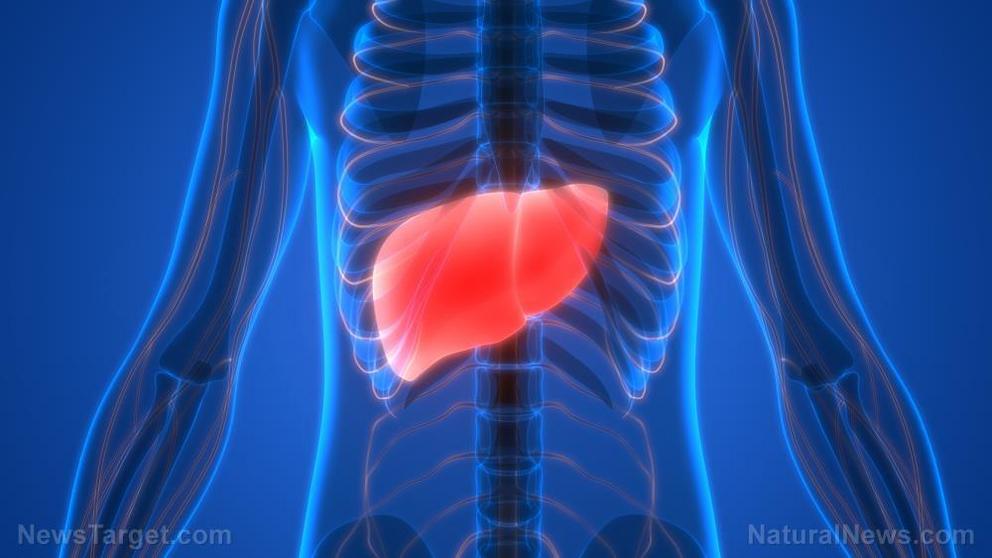Fight the effects of fatty liver with myo-inositol
Fatty liver – also referred to as hepatic steatosis – is a condition that affects about 25 percent of the world’s population. It is caused by the buildup of too much fat in the liver, which stems from either excessive alcohol consumption or having a diet rich in fats. Other factors that lead to fatty liver include obesity, excess belly fat, insulin resistance, and the intake of large amounts of sugar. In a recent study published in the journal Nutrition Research, researchers from Gifu University in Japan found that myo-inositol, a naturally occurring member of the vitamin B family, can prevent fat accumulation in the liver. Supplementation with myo-inositol also proved effective in counteracting the effects of a high-fructose diet on rats.
What is myo-inositol?
Myo-inositol is a common form of inositol, a vitamin-like substance that is also referred to as vitamin B8. However, inositol is actually a type of sugar that is naturally present in many foods, such as citrus fruits and fiber-rich beans, corn, brown rice, sesame seeds, and wheat bran. In its other form as myo-inositol, this sugar alcohol acts as an intracellular secondary messenger and a regulator of many hormones, including thyroid-stimulating hormone, follicle-stimulating hormone, and insulin.
Myo-inositol is often studied in relation to polycystic ovarian syndrome (PCOS). PCOS is an endocrine, reproductive, and metabolic disorder that affects almost 10 percent of women around the world. The majority of PCOS cases exhibit a 70 percent incidence of insulin resistance (IR). Because myo-inositol has an insulin-sensitizing effect that reduces IR, it is considered an effective treatment for IR-related disorders like PCOS. According to studies, myo-inositol supplementation can also relieve hormonal and reproductive impairments associated with PCOS.
Aside from PCOS, myo-inositol is also used to treat acute respiratory distress syndrome (ARDS) in infants and psoriasis symptoms in patients who use lithium drugs.
Myo-inositol can reduce fat accumulation in the liver
In their study, Japanese researchers investigated the effects of myo-inositol supplementation on fatty liver induced by high amounts of fructose. Excessive fructose ingestion drastically increases the accumulation of fat in the liver. On the other hand, previous studies suggest that myo-inositol can remarkably reduce sucrose-induced triglyceride (TG) accumulation in the liver. Because myo-inositol is a strong lipotrope — a compound that catalyzes the breakdown of fat during metabolism — the researchers hypothesized that it can also improve fatty liver induced by ingestion of fructose.
For their experiment, they fed three sets of rats a high-glucose diet (HGD), a high-fructose diet (HFD), and an HFD supplemented with 0.2 percent myo-inositol for 12 days, respectively. The researchers reported that TG levels in the liver as well as the mRNA levels of the following factors were higher in the HFD group than in the HGD group, but were markedly decreased in the HFD group supplemented with myo-inositol:
- Fructolysis (metabolism of fructose): ketohexokinase and aldolase B
- Lipogenesis (the conversion of fat for storage): pyruvate kinase, liver, and red blood cells (RBC); glucose-6-phosphate dehydrogenase; acetyl-CoA carboxylase alpha; fatty acid synthase; and stearoyl-CoA desaturase 1
- Carbohydrate-responsive element-binding protein, a key transcription factor for lipogenesis
These suggested that myo-inositol supplementation can counter the effects of a HFD and prevents the buildup of fat in the liver. On the other hand, mRNA levels for B-oxidation (acyl-CoA synthetase and carnitine palmitoyltransferase 1a) of fatty acids did not differ among the three groups.
Based on these findings, the researchers concluded that myo-inositol supplementation decreases the expression of fructolytic or lipogenic genes and proteins, as well as TG accumulation in high fructose-induced fatty liver in rats.
For full references please use source link below.

